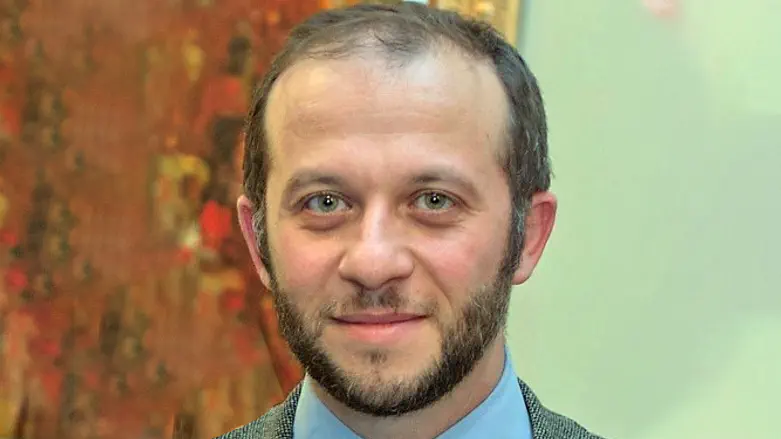
Why doesn’t Netanyahu implement his own principles of war against terror?
On September 12th 2002, then-former Prime Minister Benjamin Netanyahu was invited to address the U.S. Congress a year and a day after the September 11 attacks on America which claimed almost three thousand lives.
In his address, Netanyahu said that the application of power was “the most important thing in winning the war on terrorism.”

Netanyahu said: “The three principles of winning the war on terror are the three W.'s. Winning winning and winning. “It's like what are the three principles of real estate…... Location location location,” Netanyahu said. “The three principles of winning the war on terror are the three W.'s. Winning winning and winning.”
“It's like what are the three principles of real estate…... Location location location,” Netanyahu said. “The three principles of winning the war on terror are the three W.'s. Winning winning and winning.”
Netanyahu had gained an international reputation as an expert on the issue of defeating terror since the release of his book Fighting Terrorism which was timed to be released during 1995 in the lead up to the elections for prime minister in Israel a year later, which he narrowly won.
Nevertheless, the language in his book, and that used before Congress and elsewhere could and should perhaps be a sober read for the Benjamin Netanyahu of 2019.
Since returning to power in 2009, many thousands of rockets were launched against Israeli civilian communities, causing many casualties and hundreds of injuries.
At the beginning of 2019, Hamas has barely been weakened. Its leaders live under few threats and openly call for the destruction of Israel and mass murder of innocents in the safe knowledge they won’t be targeted.
They feel anything but defeated.
Even the two conflicts with Hamas under Netanyahu’s leadership, Operations Pillar of Defense and Protective Edge, while delivering a wound to the terrorist organization in the very short term, achieved very little strategic advantage, let alone long-term deterrence.
Instead, the Israeli government appeases Hamas by transferring to them millions of Qatari dollars in cash, even while hundreds of rockets were launched on Israel and thousands of terrorists attempt to breach our border. Former Defense Minister Avigdor Liberman has called the Qatari payments to Hamas with Israel’s blessing mafia-style “protection payments.”
The actions of paying terrorists not to fire on you and limp-wristed responses to attempted mass murder are hard to reconcile with the words of the person who said that the application of power was the most important thing in winning the war on terrorism.
The words of Netanyahu in front of Congress in 2002 had influence on the U.S. to deliver mortal blows against terrorist organizations like Al Qaeda in Afghanistan and elsewhere, and Saddam Hussein’s Iraq. They taught the Americans that to ensure there would be no repeat of the September 11 attacks, terrorism had to be defeated, and in the ensuing years it largely was.
“The more victories amassed the easier the next becomes, the first victory in Afghanistan makes the second victory in Iraq that much easier,” Netanyahu continued in his address to Congress in 2002. “The second victory in Iraq will make the third victory that much easier too.”
These words and this strategy of achieving a victory against terror were the correct remedy. A victory over Hamas would have made other enemies and their supporters sit up and take note. It would have instilled a strong victory mentality in the IDF and the people, and provided massive national self-confidence while deterring future attacks from all quarters.
Unfortunately, this begs the question whether during the last decade of Netanyahu’s rule if Israel has arguably won a single war, operation or conflict.
To win a war or end a conflict, as we have seen throughout history, means ensuring that your enemy or opponent lacks the will or means to continue to fight. The situation of Hamas and its leadership over the last decade has only improved, economically, politically and militarily.
It has not been persuaded to give up; instead Hamas has been enticed to continue its genocidal war of annihilation. The only leader who now talks of victory and winning is Ismail Haniyeh who claimed in November after Israel’s indecent rush to accept a humiliating ceasefire that “the resistance has achieved a military victory over the despicable occupier in less than a week.”
We need to develop and actualize the ideas Netanyahu laid out before the world in 2002 at the beginning of the War on Terror. Israel needs to change its attitude to our enemies and apply the type of military power that ensures our opponents are rushing to raise the white flag of surrender.
This can be achieved, and we have seen this veracity around the world and throughout history.
Conflicts do not end with ceasefires, negotiations, financial assistance and compromise. These can all take place only after an opponent has been defeated and the victor’s will imposed on the defeated.
Alex Selsky is a former adviser for the PM Netanyahu, member of the Executive of the World Zionist Organization, CEO of the World Israel Beytenu Movement, lecturer at the school of Politics and Communication in the Academic College Hadassah in Jerusalem.
